Premiered in Berlinale's Encounters section, where it received the Special Jury Award, Le Bao's “Taste” is a film of pauses. Set in Saigon, Vietnam, it tells a story of a Nigerian ex-football player who finds his shelter through living with local middle-aged women in somewhat of a bunker. With their routines entangled and bodies exposed to daylight, they drift through days and nights together, much like ghosts finding their long-gone shadows. They occupy an empty, dark space, a gallery of ultimate bareness. With no clothes, nor the furniture, their bodies perform the everyday mundane: they cook, bathe and sleep together, share their intimate stories, which echo with melancholia. In a vision of a world that has already stopped, the time in “Taste” becomes a motionless pool.
One might have a glimpse of their reality, as the perception of time seems to float around purposelessly, perhaps just as in the lives of many currently. Each of the film's scenes meditates on the texture of bodies; the soundscape is filled with breaths of longing; there's a TV on in the background, which adds a shivering ambience to the bodies in the vast dark stillness. The camera follows the skin, but it's the synesthesia experience that captures the viewer's perspective: the carnality in the dusty space is a rare fragrance of beauty. This is a pause of reflections – with a broad spectrum of textures, Le Bao's meditative rhythm enables him, and the viewer, to delve into the moodscape of Saigon.
“Taste” is a film that might tempt in drawing many connections to the canon of arthouse representation in Asian Cinema, but it would be a drastic underappreciation to commit to that conclusion. I, too, was willing to give a label of a copy-cat perhaps too hastily. Until I talked with Le Bao. Meeting him, even though it was through Zoom, was a game-changer for reshaping the perspective on film. On the occasion of Berlinale, we discuss the moodscapes of Saigon, and how he wanted to grasp the feeling of the city in the film. We tackled the movies's compositions, frames, movement (and its lack), and the obsession of nakedness of textures, as well as the possibility of falling asleep in front of the screen.

The film is based on your memories, but it's also an intersection between the surreal and real. Where did the component of reality come from?
Two key elements shaped the story. The first one is connected with the real feeling I had when I started to think about the idea of the film. When I was a student, I used to take the bus to go to school every day. Back then, I would start paying attention to what was around me. Every day, I noticed African men travelling with me on the bus. They were very tall, much bigger than me, always at the very back of the bus. At that time, they would just keep very calm and quiet. I could sense some feeling of loss, a flow of sadness in their expression of bodies. This feeling stayed in my mind for a long time. It was a recurring one, and it made me start imagining their origins, and how they felt when they arrived in Saigon, Vietnam. Their loneliness was something that stuck with me. It propelled my observations. I began to do it very carefully and explore more about their community with the idea to tell their story one day.
Then, I started to approach the African community. The way of life in Saigon was truly fascinating to me. They seemed so liberated. It took me some time to delve into their private realm, though, as the biggest barrier was the language. But thanks to that, I could focus on observations. I became the eyes.
Although I wanted to share their story, I didn't want to reveal everything that happened. At first, I thought that “Taste” would be a documentary with a fast rhythm and handheld camera shots that would be close to the lives of the Africans in Saigon. However, soon enough, I realized it was not the way I wanted to depict them, it did not feel right.
Why didn't it feel right?
I somewhat felt I can't get any emotions from that approach. I felt it's not me. I started to think about other forms of expression. I realized that if you take time and use it for making a static frame, you can feel more from the human body and the regular interactions with others. If you keep it quiet, you can feel people. It became a model for me; an important one because it enabled me to encapsulate the feelings for my film.
Did you have any obstacles during preparing the script?
When I wrote the script, I didn't know anything about being an independent filmmaker. I knew nothing of film festivals. I just wanted to tell my story. I rewrote the script numerous times and one day, I wanted to see how the image in the script would become an image on the screen and that's how I started to look for the money. With the budget I had, we could only afford a decent camera and a crew, so I needed to find an aesthetic feeling to the film as well. I would just go to the streets and see the scenery like a painter does. I wanted to grasp the notion of space, to feel the colour palette, the dust. Gradually, I became confident in my vision. That was the way to improve the image for me – it started from writing, but the process altered into having conversations with people, working around the locations. The aspect that I started with was the space, and I think it's the most important thing for my storytelling.
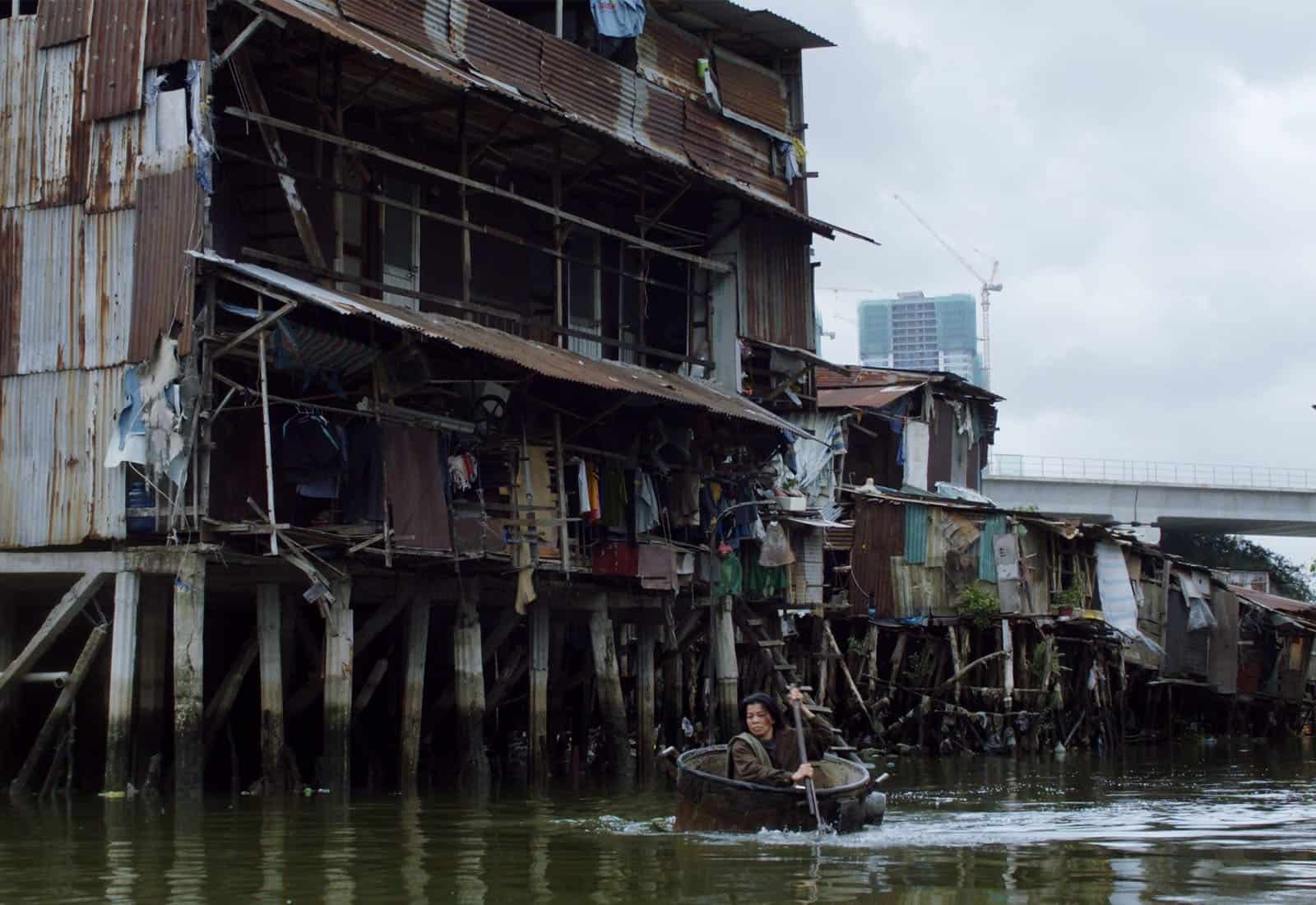
How did you find the space for your film?
This is the image of slums by the riverside that appeared already in my previous short film. I was born in a place like this in Saigon, that's why it was important for me to shoot the film there. When I was a little boy, I used to spend my days at home simply waiting for my father to come back from work. I tried to look outside through the small windows. I guess I started being an observer back then: watching people around me in their small houses, people near the river, noticing the smell of it. Without it, it would be a different place, and I needed to grasp its ambience, so it became an important aspect of the film's atmosphere. The other place was a barbershop. You can't find places like these anymore, but I wanted to grasp it the way I remembered it in the past. I used to come to a barbershop like this with my father when I was little. I don't know how, but they managed to keep the business going. I remember these places were full of scents, smells that my memory preserved very well. I also remember visiting my father at the river where he used to work. That space fascinated me even back then: with the smell of gasoline around me, the dry air, the sand of the river, the scent of my father's sweat. It all mixed. I wanted to find places that would fit that memory, but also, I wanted to reflect on the sensuality: the textures of people's skin, the composition of scents. These places tell stories of my feelings.
The space is very minimal, with barely any furniture. How did you organize it?
If you come to Saigon, you can see how packed it is, especially the slums. Many people sleep in very tiny spaces. Their houses are stacked with things. In my film, there's none of it. The furniture is very minimal, the space reveals people, they're naked in it, uncovered. I wanted to remove the things, so that I could focus on the people, on their feelings, on an alternative, different world.
Since the movement of the characters (or its lack) is very important for composing the scenes in your film, I was wondering how did you work with your actors? Were there any complicated rehearsals?
The effect of the scenes doesn't come from the rehearsals. We didn't gather all the actors together for rehearsals. I worked separately with each of them by simply allowing them to do their rituals: kneading dough, making dumplings, rowing on the river, riding the bicycle, etc. To me, rehearsing together would take away the freshness of the scene, which I feel is very important in a sensory expression here.
During the pre-production, I wasn't too close with the actors, but I knew how to spend time to get to know them. I listened to their life stories, observed how they expressed their happiness, sadness, and emotions. I tried to understand them to a certain extent. It worked as nourishment for my mind; it enabled me to find the rhythm of connecting each actor to their respective roles. What's interesting is that in different circumstances, my amateur actors adapted and grasped their roles in the most instinctive way depending on the nuances of the space. Thanks to that, I could then direct them and move toward what I wanted from them. I think the process of seeking and choosing actors for “Taste” was very important.
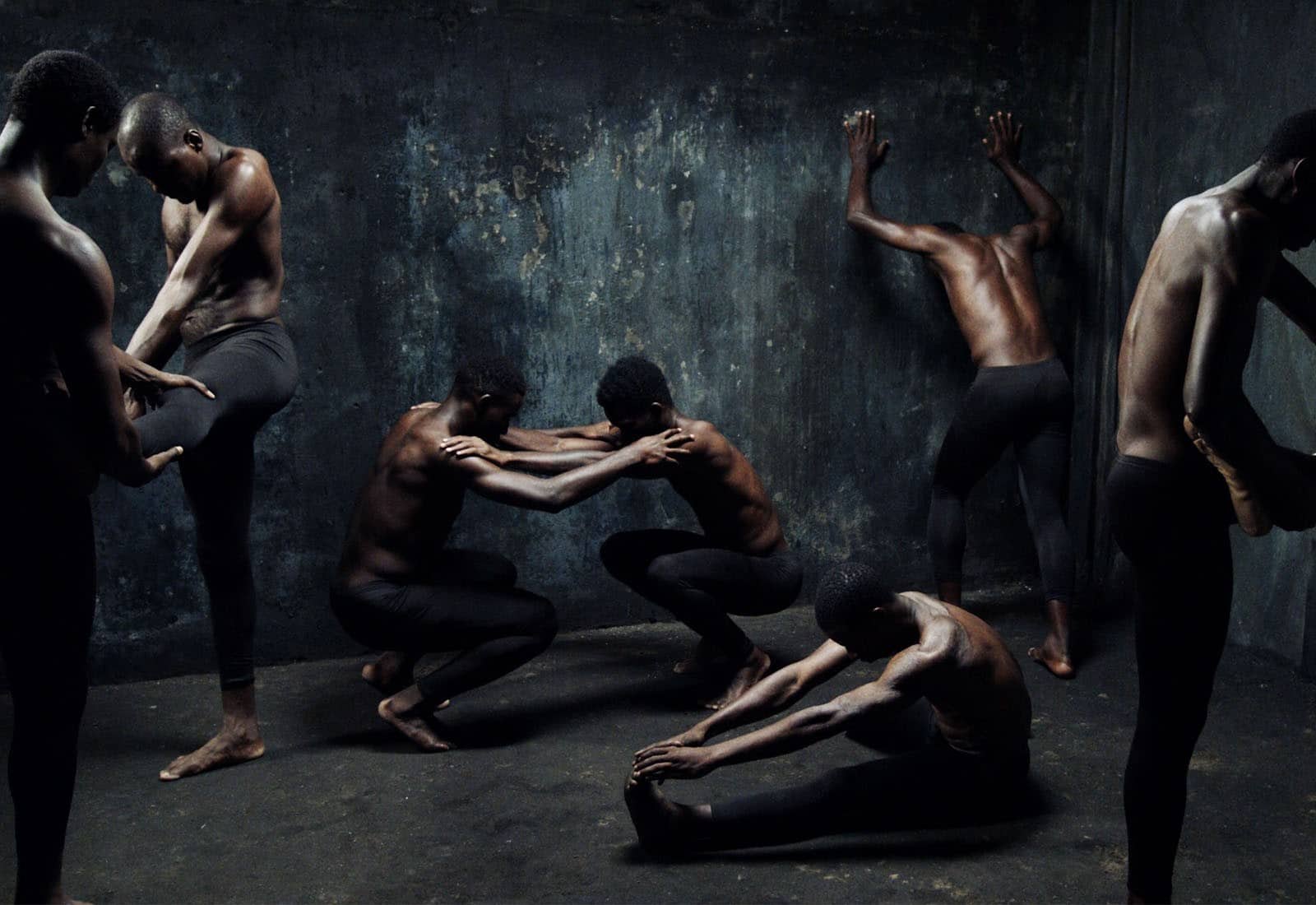
Linked to a movement, there is your obsessive focus on physicality and nudity. Why have you decided to portray your characters like that?
When thinking about their activities and their interactions, portraying them naked seemed like the right choice from the very beginning. It seemed like a very natural decision. At first, I didn't try to force myself to make a different world, but the process of writing the script and thinking slowly took shape of my world. Of course, it has elements of primitiveness. I cared about how they interacted with each other, which is very important in a world where almost everything is returned to its pristine state. The primordial character of humans was then aroused, and only after that, people could find their rest and recognize each other.
When I remember someone, I usually remember their figures for a moment. I am really fascinated by how people sit, lie down, or walk. During filming, I was especially interested in my actors' poses, their behaviour. Sometimes I would pay attention to very small details, such as how their hair is, where the hands are located, the shape of their fingers, the feet. I was very thorough in these details because all of these are very important in expressing emotions.
Much of the film's space is left to the character's breathing and nuances of the body. The breath is the most original and engaging sound. Sometimes there is no need for a word. Without looking directly at it, the feeling of breathing will still show primitive honesty.
Much of the everyday life of your characters is captured in front of the television.
This works as the gauge for positioning characters. I reflect on how the characters occupy the space. I'm genuinely interested in what people do when they watch TV. As simple as it sounds, when people watch TV, they can do anything. You can watch the screen, but you can also start doing something entirely different. All at the same time, right? Some people need the screen to fall asleep. They sleep in front of it. In Vietnam, people always turn the TV on when they do something. It's always in the background, but we also turn it on when we sleep. Most of the time, we won't pay any attention to what's happening on the screen. What is there on the screen is something completely irrelevant, but what I do care about is the image of people in front of it, their postures. They represent a certain rhythm of living, a feeling of a moment that I want to capture in the film. There's one scene when three women sit on the bed, watching the TV. It has no sound, though. The audience can feel more thanks to the position of their bodies, through the sound of breathing. The sound of it is very delicate, and so is their movement. This is my favourite scene in the film.
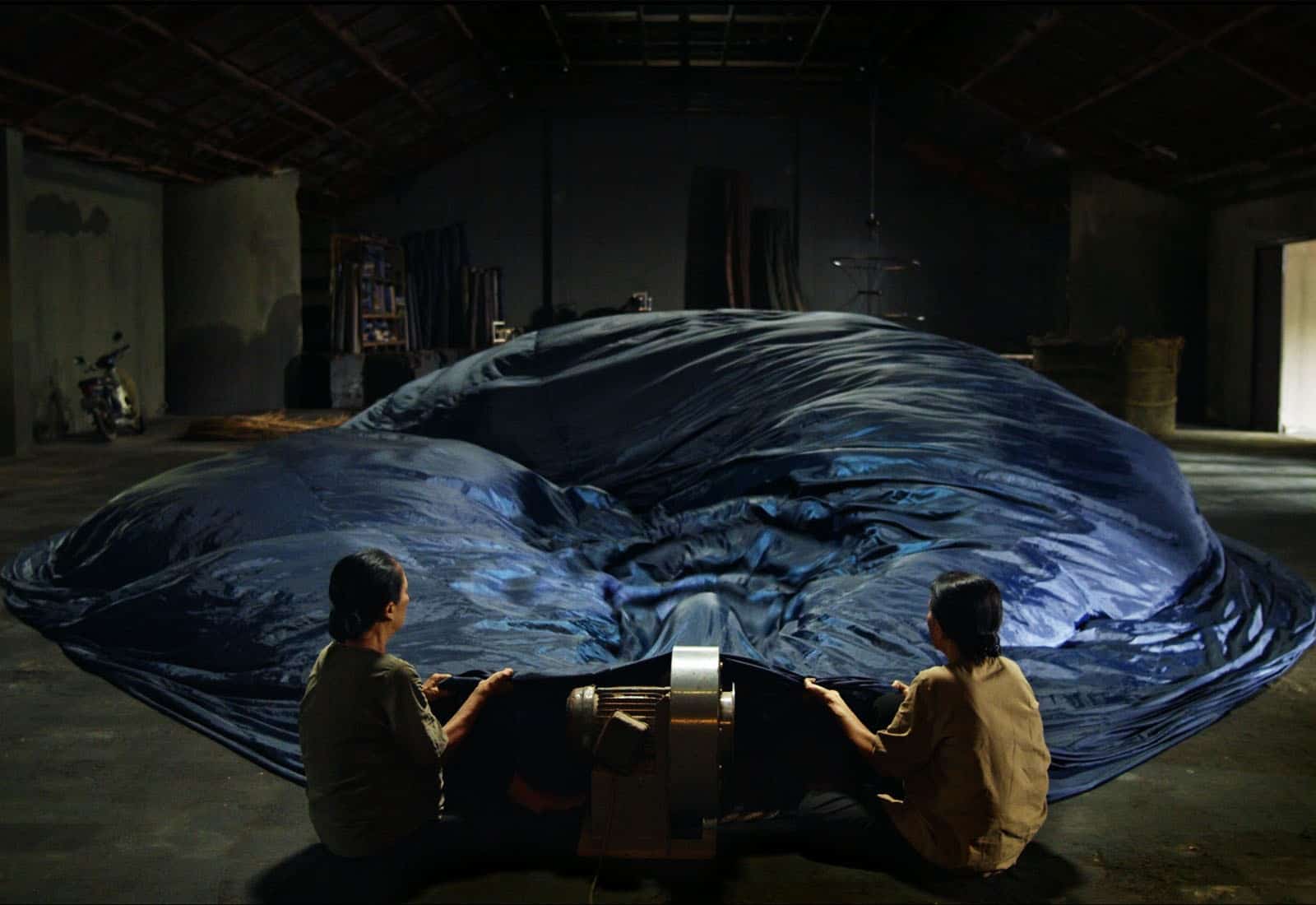
Would you like to see people sleeping at your film?
I guess that when people will watch my film, they can fall asleep whenever they want. It's up to the audience's choice. Since the film is already turned on, you can do anything and sit anywhere you want. You can pause or play it all along. Maybe if you come to the cinema, you might realise it's a perfect opportunity to fall asleep. But before you sleep, you're already there, captured between the film and reality, astray. You're already seeing something from the film: the colours and the images. You close your eyes, but you still hear the sound. That impression can stay in your mind. After you wake up, you might not be left with much, maybe you won't get anything. The whole story might be completely unclear. But you might as well be left with a feeling. And if that feeling can stay in your mind, then that's really good.
Since you've asked that question, I'd like to talk a bit about editing as well. I was very lucky because I had the chance to work with a very good editor [Lee Chatametikool; known for his collaborations with Apichatpong Weerasethakul]. He was very sensitive to every scene, realizing how powerful a single moment or a cut can be. He knew how we could achieve a lack of emotion in one scene, and then grasp its flow in the next one.
Film critics have linked your film to the aesthetics of some of the biggest names in the arthouse cinema: Pedro Costa, Tsai Ming-liang, Apichatpong Weerasethakul. Do you consider them as filmmakers that had an impact on creating “Taste”? Why do you think critics try to perceive your film through that lens?
I know about those statements and I respect that, it is the freedom of the viewer to make such a statement. On my side, these are three good directors, but their films are really very different from mine. I understand my film language and where it comes from.
The expression and self-aestheticism in my cinema are influenced by my real life: my house in a slum when I was a little boy, the rhythm of the river, the way people move or sit in a state of indetermination, silent encounters with my father among the sand, or the unsettled reunions with my family. It all haunted me; it had its unique rhythm – quiet, but at the same time, very tumultuous. For years these feelings and memories immersed me, but then again, they made me long to escape. It felt like being awakened inside a dream. That's my film.


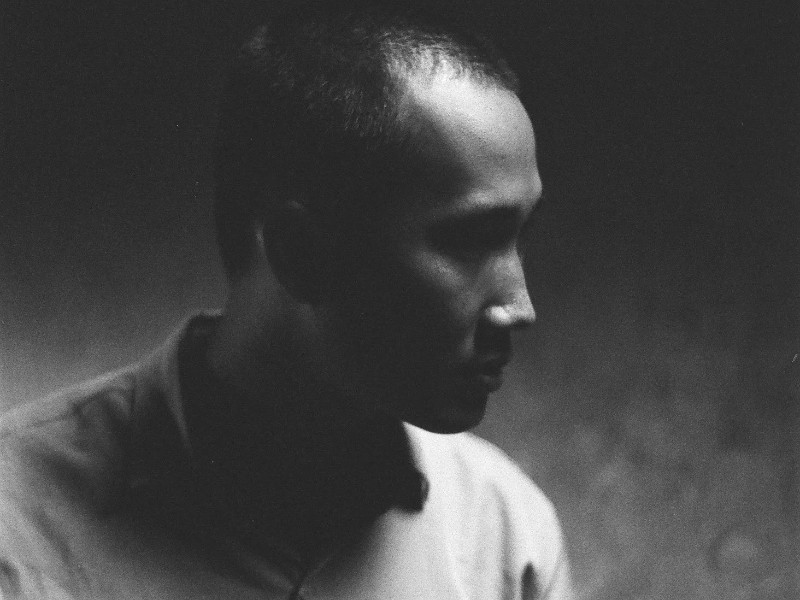

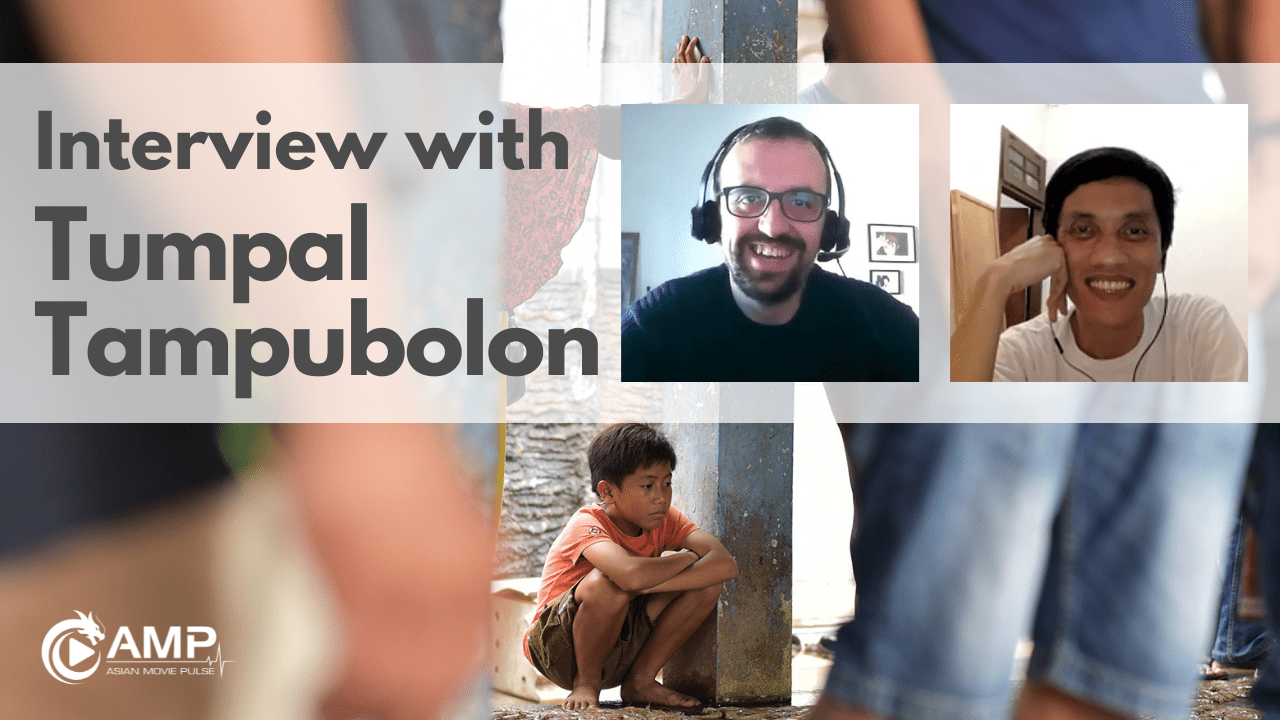
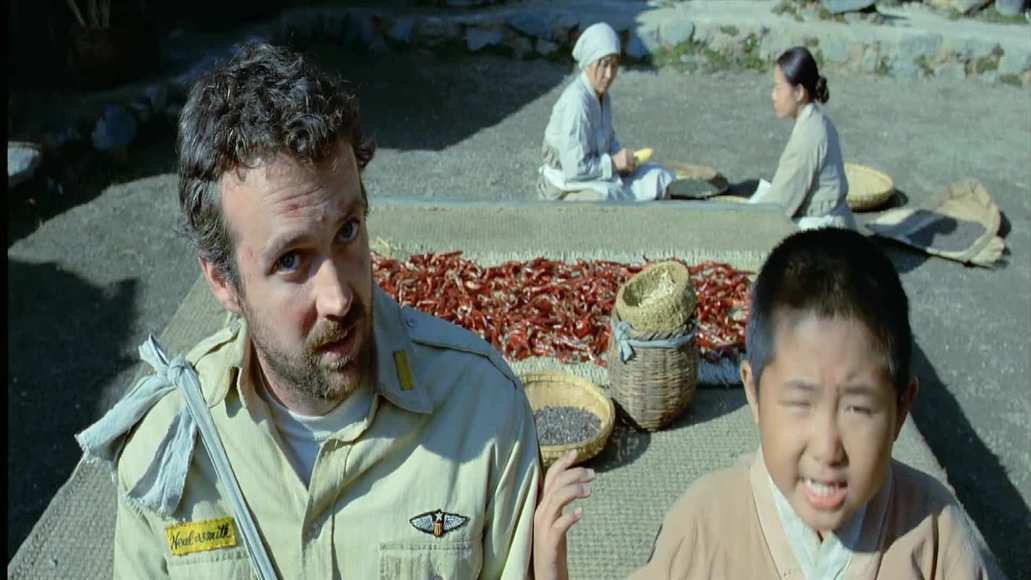
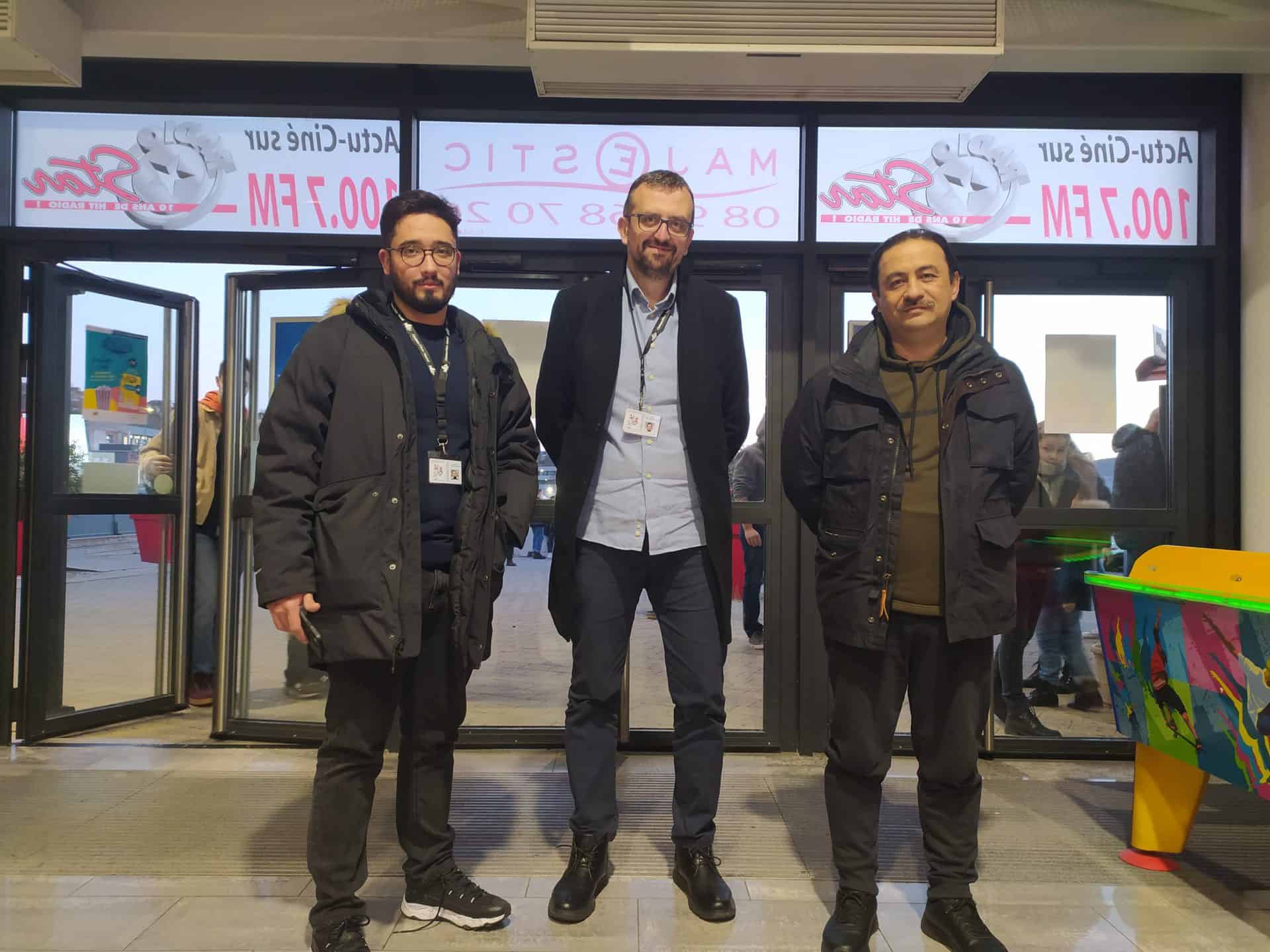
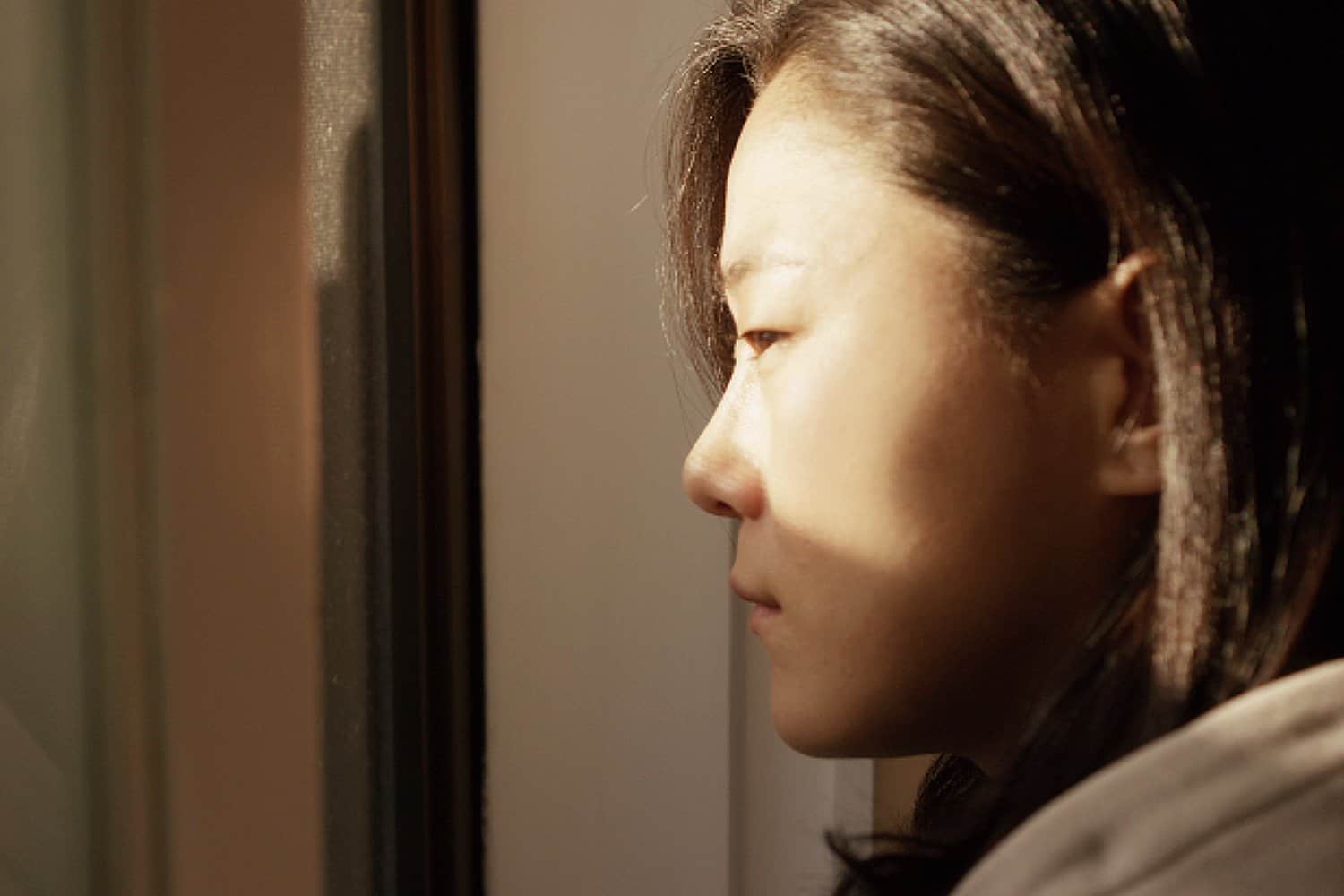
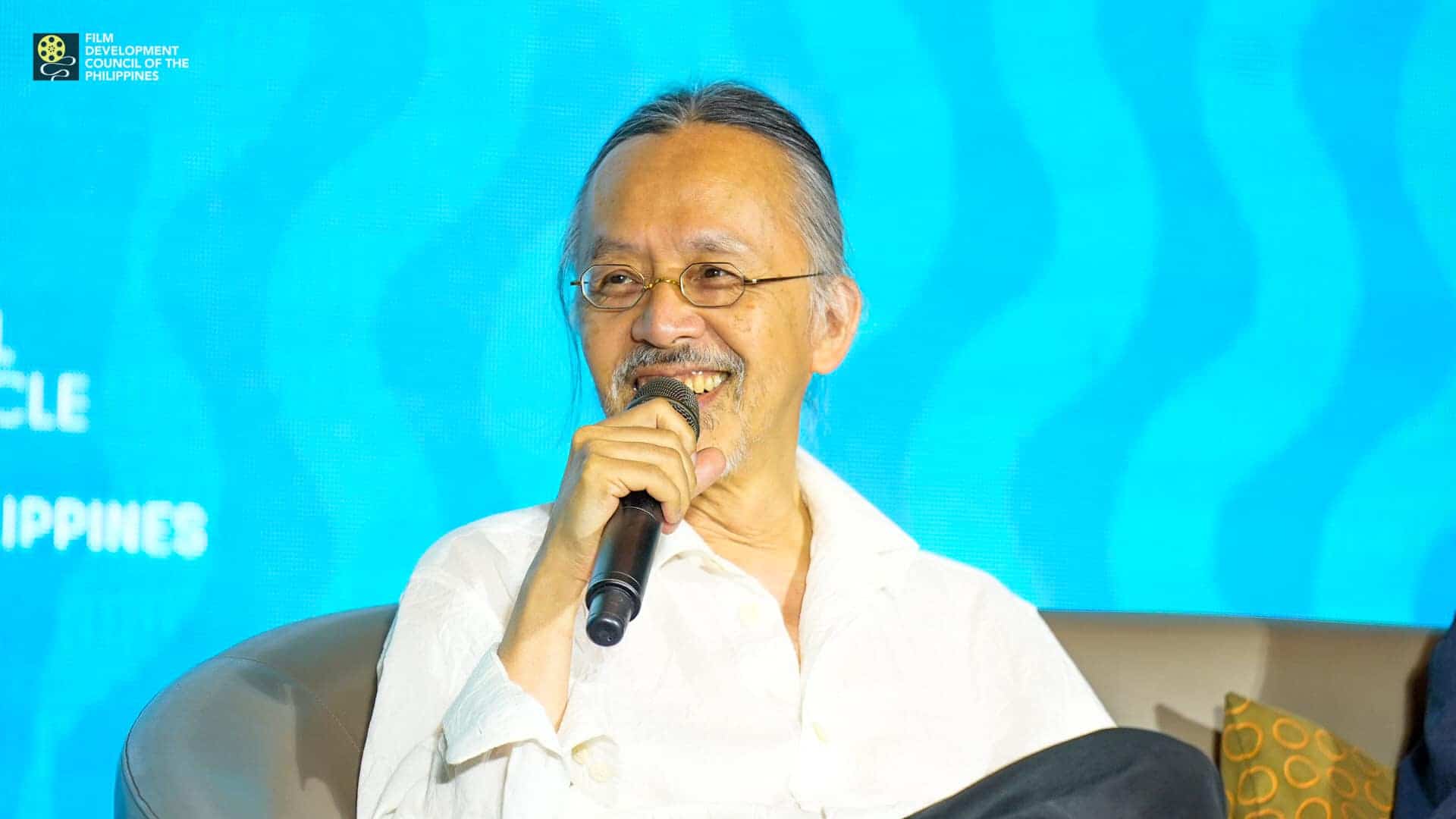







this boy is so naive. and the movie is quite pretentious.